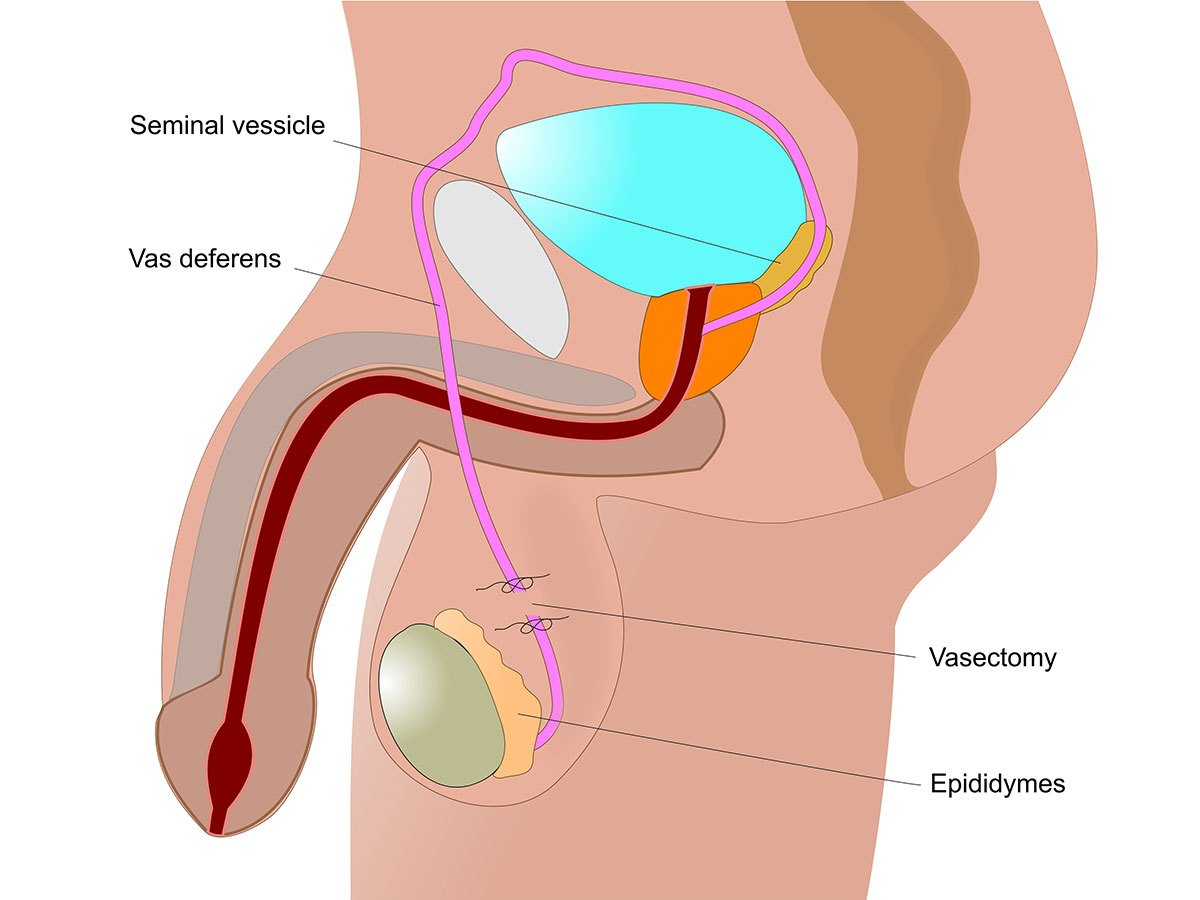Vasectomy in Costa Rica
Search and Compare the Best Clinics and Doctors at the Lowest Prices for Vasectomy in Costa Rica

Find the best clinics for Vasectomy in Costa Rica
No pricing info available
Russian Federation offers the best prices Worldwide
Price: $ 275
From 80 verified reviews
B-boy Michael, 25 March 2020
It is a good place for the need of a medical service, the facilities are in very good condition, the attention to the users is quite good, with the parking you can park outside, but there is parking in front of the building.
Clinica Hospital Santa Catalina, located in Radial Francisco J Orlich, Alajuela, Costa Rica offers patients Vasectomy procedures among its total of 171 available procedures, across 4 different specialties. Currently, there's no pricing information for Vasectomy procedures at Clinica Hospital Santa Catalina, as all prices are available on request only. All procedures and treatments are undertaken by the lead specialist at the Hospital, and they are accredited by Costa Rica Ministry of Health
From 1 verified reviews
Rebeca obando murillo Obando murillo, 13 February 2019
Excellent surgeon and team very good deal
- Home
- Costa Rica
WHY US?
At Medijump, we're making medical easy. You can search, compare, discuss, and book your medical all in one place. We open the door to the best medical providers worldwide, saving you time and energy along the way, and it's all for FREE, no hidden fees, and no price markups guaranteed. So what are you waiting for?

Free

Best Price

Widest Selection

Risk-Free
What you need to know about Vasectomy in Costa Rica

Vasectomy, sometimes referred to as male sterilization, is a form of birth control for men to prevent pregnancy. The procedure blocks the supply of sperm to the semen when men ejaculate. Men who undergo this procedure can still experience orgasm and ejaculate.
It acts as a form of permanent birth control, preventing sperm from reaching the semen, thus eliminating the chance of pregnancy.
What does a Vasectomy Procedure Involve?
Vasectomy is performed under local anesthetic, meaning that you will be awake but you will not feel anything. Your doctor will remove and seal the tubes (vas deferens) that carry sperm from your testicles. Once the tubes have been cut, your sperm cannot reach your semen or leave your body anymore.
How Long Should I Stay in Costa Rica for a Vasectomy Procedure?
You can leave the hospital on the same day of the procedure, but you will need to stay in Costa Rica for at least 2 to 4 days. During your stay, you will need to attend hospital check-ups. If your doctor does not use dissolving stitches, removal of stitches will take place during the check-up.
What's the Recovery Time for Vasectomy Procedures in Costa Rica?
Rest for at least 24 hours after the procedure and avoid physical activities, such as exercise and sexual intercourse, for around a week. You should be able to go back to work in 3-5 days.
What sort of Aftercare is Required for Vasectomy Procedures in Costa Rica?
There is no special diet you need to follow and do not have unprotected sex until you have ejaculated at least 15 to 20 times. Once you have had 15 to 20 ejaculations, you can undergo a follow-up test with your local doctor to examine if your semen is free of sperm.
What's the Success Rate of Vasectomy Procedures in Costa Rica?
Vasectomy is almost 100% effective. Unsuccessful vasectomy happens when the tubes re-join, but it is very rare. Risks and side effects are very uncommon, but if they do happen, they usually include infection, inflammation, bruising, and swelling.
Are there Alternatives to Vasectomy Procedures in Costa Rica?
There is currently no alternative for male sterilization that is as effective as a vasectomy. The current best alternative for men is to use a condom during sexual activities or to ask the female partner to use birth control.
What Should You Expect Before and After the Procedure
Before the procedure, you need protection to avoid unwanted pregnancy. After the procedure, you no longer need any form of protection as your semen is free of sperm. However, the procedure will not protect you from any sexually transmitted infections.
Whilst the information presented here has been accurately sourced and verified by a medical professional for its accuracy, it is still advised to consult with your doctor before pursuing a medical treatment at one of the listed medical providers
No Time?
Tell us what you're looking for and we'll reachout to the top clinics all at once
Enquire Now

Popular Procedures in Costa Rica
Prices Start From $500

Prices Start From $2,473

Prices Start From $683

Prices Start From $322

Recommended Medical Centers in Costa Rica for Vasectomy

- Interpreter services
- Translation service
- Religious facilities
- Medical records transfer
- Medical travel insurance
- Health insurance coordination
- TV in the room
- Safe in the room
- Phone in the room
- Private rooms for patients available

- Interpreter services
- Translation service
- Religious facilities
- Medical records transfer
- Medical travel insurance
- Health insurance coordination
- TV in the room
- Safe in the room
- Phone in the room
- Private rooms for patients available

- Interpreter services
- Translation service
- Religious facilities
- Medical records transfer
- Medical travel insurance
- Health insurance coordination
- TV in the room
- Safe in the room
- Phone in the room
- Private rooms for patients available

- Interpreter services
- Translation service
- Religious facilities
- Medical records transfer
- Medical travel insurance
- Health insurance coordination
- TV in the room
- Safe in the room
- Phone in the room
- Private rooms for patients available

- Interpreter services
- Translation service
- Religious facilities
- Medical records transfer
- Medical travel insurance
- Health insurance coordination
- TV in the room
- Safe in the room
- Phone in the room
- Private rooms for patients available
Vasectomy in and around Costa Rica
Costa Rica is a tiny country in Central America, bordered by Panama, Nicaragua, the Caribbean Sea, and the Pacific Ocean. This country is generally regarded as having the most democratic and stable government of all the Central American countries. It charms its visitors with unspoiled beaches, lush rainforests, a plethora of wildlife, and steaming volcanoes. Besides its breathtaking landscape, Costa Rica is also famous for its healthcare. Tens of thousands of medical tourists come to this country to take advantage of its world-class yet inexpensive medical care. Most of the medical procedures in the country are 40% to 50% cheaper than in the United States or Europe. Cosmetic surgery and dentistry are the most sought-after procedure, but a growing number of foreign patients also come for orthopedic treatment, bariatric surgery, and eye surgery.
Popular Parts of Costa Rica
Surrounded by volcanoes and green hills, San José, the capital and largest city of Costa Rica, has one of the most spectacular settings in the world. This laid-back and pleasant capital is filled with colonial mansions that have been converted into contemporary galleries, amazing food, and vibrant nightlife. The most popular attractions in this city are Museo de Jade, Teatro Nacional, Museo Nacional de Costa Rica, and Mercado Central. Those who want to relax under the sun usually visit Tamarindo, which is famous for its beaches. Here, visitors can visit Las Baulas National Marine Park, go rafting in the Colorado River, or relax in Playa Tamarindo.
Weather and Climate in Costa Rica
Due to its close proximity to the Equator, Costa Rica is a tropical country with two seasons: the dry “summer” season and rainy “winter” season. The dry season, from January to April, is warm and pleasant. Rain is very unlikely to fall during this season, even in the rainforests. The rainy season, sometimes called the “green season,” is hot and humid. Rain usually falls in the afternoon and evening, while the mornings are often sunny. On the Caribbean coast, rainfall is spread out throughout the year, but it gets far less rain in September and October.
Getting around in Costa Rica
Juan Santamaría International Airport is the main international airport in Costa Rica, located in San José. It has various flights to domestic and international destinations, including Toronto, Mexico, New York, and London. Affordable domestic flights between San José and popular destinations are the fastest way to get around and handy for accessing the more remote areas. Buses are reasonably priced and have an extensive network, but they can be slow. Private and shared shuttles are available, the best way to get around is, however, by renting a car as it gives more flexibility and allows you to access more remote destinations.
Tourist Visas in Costa Rica
Everyone who wants to visit and stay in Costa Rica is required to have a passport unless they are a citizen of one of the visa-exempt countries. The visa-exempt countries include EU countries, the UK, the US, Australia, Russia, and several other nations. Citizens of other countries not listed in the visa exemption agreement need to apply and obtain a visa before visiting.
Additional Information
- Local Currency: Colón (CRC) is the national currency of Costa Rica. 1 USD is equivalent to 601 CRC. In some places, such as tourist areas, US dollars are accepted.
- Money & Payments: ATMs accepting foreign cards, particularly Visa, can be found in all major cities and small towns. Credit cards, such as Visa and MasterCard, are all accepted in larger establishments. Tipping is not mandatory but appreciated.
- Local Language: Costa Rican Spanish is the official and most commonly spoken language in Costa Rica. English is widely spoken in tourist areas.
- Local Culture and Religion: Roman Catholicism is the official religion in Costa Rica, but the constitution provides for freedom of religion. Around 17% of the population is unaffiliated with any religions and around 3% follows either Buddhism, Islam, Judaism, Hinduism, Neo-Paganism, or other religions.
- Public holidays: New Year’s Day, Juan Santamaria Day, Guanacaste Day, Assumption, Mother’s Day, Independence Day, Day of the Cultures, and Christmas Day are some of the most celebrated public holidays in Costa Rica.
Popular Searches
- Plastic Surgery in Thailand
- Dental Implants in Thailand
- Hair Transplant in Thailand
- Breast Augmentation Thailand
- Gastric Sleeve in Thailand
- Gender Reassignment Surgery in Thailand
- Laser Hair Removal in Bangkok
- Botox in Bangkok
- Dermatology in Bangkok
- Breast Augmentation in Bangkok
- Coolsculpting in Bangkok
- Veneers in Turkey
- Hair Transplant in Turkey
- Rhinoplasty in Turkey
- Stem Cell Therapy in Mexico
- Rhinoplasty in Mexico
- Liposuction in Mexico
- Coolsculpting in Tijuana
- Rhinoplasty in Korea
- Scar Removal in Korea
- Gastric Sleeve in Turkey
- Bone Marrow Transplant in India
- Invisalign in Malaysia
- Plastic Surgery in the Dominican Republic
- Tummy Tuck in the Dominican Republic
- Plastic and Cosmetic Surgery in Poland
- Rhinoplasty in Poland
- Hair Implant in Poland
- Dental Implants in Poland
- IVF in Turkey

